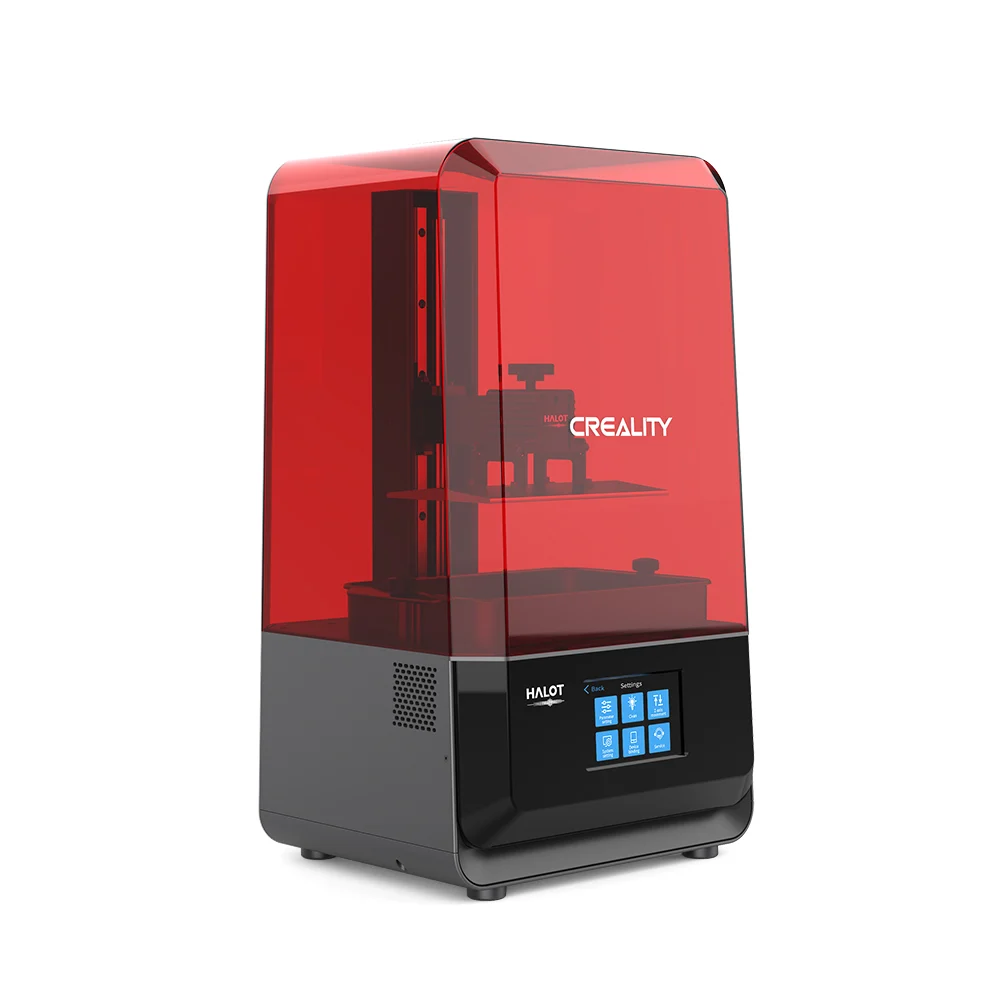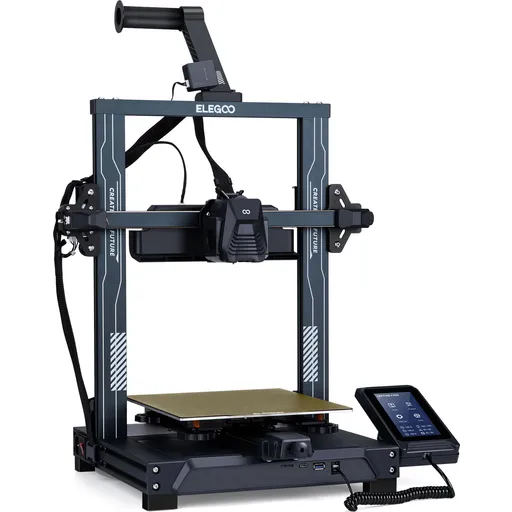Compare Halot Lite vs Neptune 4 PRO
Comparison between the best 3D printers
Choose the best 3D printer at the best price. The cheapest 3D printers are here.
Buy a 3D printer here with 3D Fila.
 |
 |
|
| Model | Halot Lite |
Neptune 4 PRO |
| Printing Material | Resin | Filament |
| Buy Resin for Creality 3D Halot Lite | Buy Filament forElegoo Neptune 4 PRO | |
| Estimated price | $400,00 | $359,00 |
| Manufacturer | Creality 3D | Elegoo |
| Release Year | 2021 | 2023 |
| Print Volume [mm] | 192x120x200 | 225x225x265 |
| Printer Size [mm] | 330x301x572 | 475x445x515 |
| Weight [kg] | 10,6 | 8,9 |
| Power Loss Recovery | NO | YES |
| Maximum Resolution [mm] | 0,01 | 0,1 |
| Processor | ARM 64 bit | |
| Display | Display touchscreen 5'' | Touchscreen 4,3'' |
| Power Supply | 310 W | |
| Connectivity | SD / USB | USB, microSD |
| Operating systems | Windows, Mac, Linux | Windows, Linux, Macbook |
| Date of registration in the system | 2022-11-04 | 2024-07-02 |
| Release date | 2021 | 2023 |
| Extra features | Crealitys Halot Lite printer stands out in the mid-size resin 3D printing segment, with a build volume of 192 x 120 x 200 mm and 50 micron resolution. It offers a monochrome LCD for fast and durable printing, and an upgraded light source that ensures over 80% uniformity across the print bed. It includes Wi-Fi connectivity for remote control and updates, an ARM Cortex CPU for efficient performance, and is compatible with Halot Box and Lychee slicing software. It also has an activated carbon filter to reduce odors. | The Elegoo Neptune 4 Pro stands out for its advanced features, including pre-installed Klipper firmware, a dual-gear direct extruder with a 5.2:1 ratio, a high-temperature nozzle (up to 300°C), a flexible magnetic PEI platform, efficient cooling fans, and a 121-point auto-leveling system. The printer also features a 4.3-inch touchscreen interface, dual linear bars on the X and Y axes, and a segmented heated bed for energy savings. |
| Support for multiple colors and materials (AMS and CFS) | NO | NO |
Notes * |
||
| Cost-benefit | 8 / 10 | 7 / 10 |
| Hardware | 1.2 / 10 | 3.2 / 10 |
| Tela | . | . |
| Print volume | 3 / 10 | 3 / 10 |
| Performance | 9 / 10 | 4 / 10 |
Conclusion |
| In comparing the Creality 3D Halot Lite and the Elegoo Neptune 4 Pro, several key factors emerge that can guide a purchasing decision based on individual needs and budget. The **Halot Lite**, released in 2021, is tailored for those who prioritize high-resolution resin printing, boasting a maximum resolution of 0.01 mm and a build volume of 192x120x200 mm. It features fast printing capabilities thanks to its monochrome LCD and uniform light source, making it suitable for detailed projects. However, it lacks power loss recovery, which may be a drawback for users who face power interruptions. On the other hand, the **Neptune 4 Pro**, which debuted in 2023, showcases more advanced features aimed at enhancing usability and flexibility. It supports a larger build volume of 225x225x265 mm, essential for bigger prints. The printer emphasizes efficiency with pre-installed Klipper firmware, a dual-gear direct extruder, and an advanced auto-leveling system, which can appeal to both beginners and experienced users. The recovery feature from power loss enhances its reliability during long print jobs. In terms of price, while both models offer solid value for their performance, the Neptune 4 Pro comes at a slightly lower price point, which could make it a more attractive option for budget-conscious buyers seeking a robust feature set. Ultimately, the choice between these two printers will depend on specific printing needs: if high-resolution detail is paramount, the Halot Lite may be the way to go. Conversely, if versatility and modern features are more critical, the Neptune 4 Pro stands out as the better option. Both models receive commendable cost-benefit ratings, ensuring that users will find satisfaction with their choice, regardless of which printer they decide on. |

